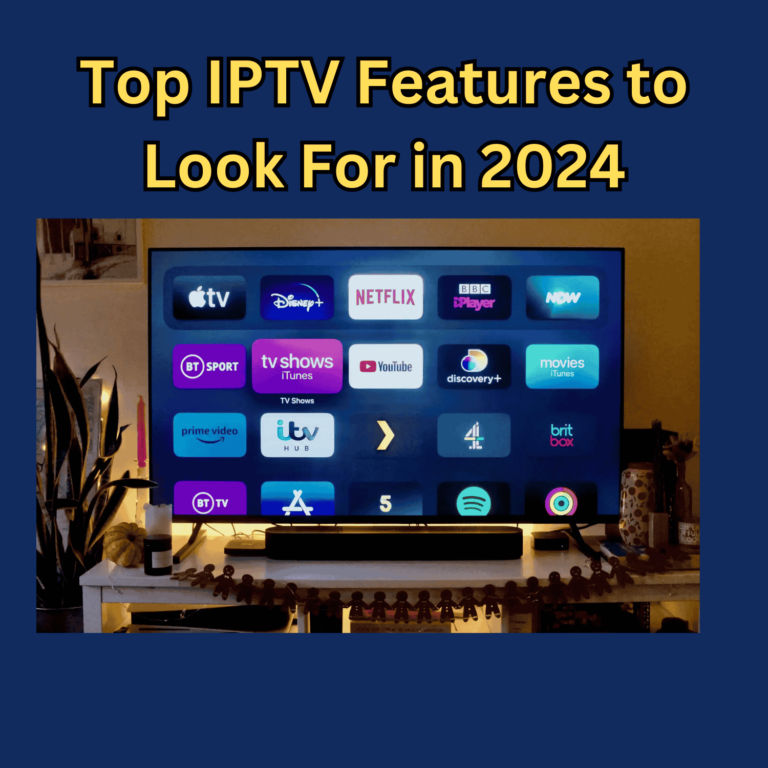Are there any regional or geographical restrictions for the IPTV service?
Are There Any Regional or Geographical Restrictions for IPTV Service?
In the digital age, the consumption of media content has drastically shifted from traditional cable TV to more flexible and user-oriented services like IPTV (Internet Protocol Television). IPTV delivers television content over the internet, providing a more customizable and often more affordable alternative to cable and satellite services. However, one of the significant concerns for potential users is whether there are regional or geographical restrictions on IPTV services. This comprehensive article explores this question in depth, highlighting the nature of these restrictions and how they impact users worldwide. It will also reference some of the best IPTV providers, such as IPTVSUBC and 4kflexhub.com, which offer top-notch services in this domain.
Understanding IPTV and Its Benefits
Before diving into the specifics of regional restrictions, it is essential to understand what IPTV is and why it has gained immense popularity. IPTV uses internet protocol to deliver television content. Unlike traditional broadcasting methods, IPTV allows for streaming media in smaller packets, which can be transmitted more efficiently and with higher quality. Here are some key benefits of IPTV:
- On-Demand Content: Users can watch their favorite shows and movies anytime they want.
- Live TV: IPTV provides access to live TV channels from around the world.
- Flexibility: IPTV can be used on various devices, including smart TVs, smartphones, tablets, and computers.
- Cost-Effective: IPTV services often come at a fraction of the cost of traditional cable or satellite services.
Regional and Geographical Restrictions in IPTV
Despite its numerous benefits, IPTV is not without its limitations, particularly when it comes to regional or geographical restrictions. These restrictions can be categorized into several types:
1. Content Licensing Agreements
One of the primary reasons for regional restrictions is content licensing agreements. Content providers (such as movie studios, sports leagues, and television networks) sell the rights to distribute their content in specific regions. These rights are often sold to different broadcasters or IPTV providers in different regions, leading to a patchwork of availability.
For example, a sports league might sell the rights to broadcast its games to one IPTV provider in Europe and another in North America. Consequently, users in Europe might not be able to access the games through the North American provider and vice versa. This is why you might find that certain content is available on an IPTV service in one country but not in another.
2. Government Regulations and Censorship
Governments around the world have varying levels of control and censorship over the internet and media content. Some countries have strict regulations regarding what can be broadcast or streamed. These regulations can result in geographical restrictions for IPTV services.
For instance, in countries with strict internet censorship laws like China, certain IPTV content might be blocked or heavily regulated. Similarly, countries with stringent copyright laws might impose restrictions on IPTV providers to prevent the unauthorized distribution of copyrighted content.
3. Technical Limitations
Technical limitations can also lead to geographical restrictions. Some IPTV services might have limited server infrastructure, making it challenging to provide consistent and high-quality streaming to users in distant regions. This can result in services being available only in specific areas where the provider has robust server support.
4. Commercial Considerations
IPTV providers often tailor their services to specific markets based on commercial considerations. They might focus on regions where they have a competitive advantage or where there is a high demand for their content. This strategic focus can lead to some regions being underserved or completely excluded from certain IPTV services.
How IPTVSUBC.com and 4kflexhub.com Navigate These Restrictions
Leading IPTV providers like IPTVSUBC and 4kflexhub.com have developed strategies to navigate and mitigate these regional and geographical restrictions, ensuring their users enjoy a seamless viewing experience regardless of their location.
IPTVSUBC.com
IPTVSUBC is renowned for its extensive content library and high-quality streaming. Here’s how it addresses regional restrictions:
- Global Licensing Deals: IPTVSUBC works tirelessly to secure global licensing deals, allowing them to offer a wide range of content in multiple regions. By negotiating these deals, they minimize the content gaps that users might experience due to regional restrictions.
- Advanced Technology: IPTVSUBC leverages cutting-edge technology to optimize streaming performance across various regions. They employ a robust network of servers and content delivery networks (CDNs) to ensure smooth and high-quality streaming, even in areas far from their primary server locations.
- User Support: IPTVSUBC provides comprehensive user support to help customers navigate any regional restrictions they might encounter. This includes guidance on using VPNs (Virtual Private Networks) to bypass geographical blocks.
4kflexhub.com
4kflexhub.com is another top-tier IPTV provider known for its 4K content and reliable service. Here’s how it manages regional and geographical restrictions:
- Localized Content Offerings: 4kflexhub.com offers localized content packages tailored to different regions. This means users can access content specifically curated for their location, enhancing the relevance and appeal of the service.
- VPN Compatibility: Understanding the importance of unrestricted access, 4kflexhub.com ensures its service is compatible with popular VPNs. This allows users to bypass regional blocks and access their favorite content from anywhere in the world.
- Flexible Subscription Plans: 4kflexhub.com offers flexible subscription plans that cater to different user needs and regions. This includes short-term plans for travelers or expatriates who need temporary access to their home country’s content.
Using VPNs to Overcome Geographical Restrictions
For users facing regional or geographical restrictions, using a VPN is a common and effective solution. A VPN allows users to connect to the internet through servers located in different countries, effectively masking their actual location. Here’s how it works:
- Choose a VPN Provider: Select a reputable VPN provider that offers servers in the desired region.
- Install the VPN Software: Download and install the VPN software on your device.
- Connect to a Server: Launch the VPN and connect to a server in the region where the desired IPTV content is available.
- Access IPTV Service: Once connected, you can access the IPTV service as if you were in the region of the chosen server, bypassing any geographical restrictions.
Using a VPN can help users access a broader range of content, but it’s essential to choose a VPN provider that ensures high-speed connections and robust security features.
Conclusion
While regional and geographical restrictions are an inherent challenge in the IPTV industry, leading providers like IPTVSUBC and 4kflexhub.com have developed innovative solutions to mitigate these issues. By securing global licensing deals, optimizing their technical infrastructure, and supporting VPN usage, they ensure that users can enjoy a diverse and unrestricted content experience.
IPTV continues to revolutionize how we consume media, offering unparalleled flexibility and convenience. However, understanding and navigating regional restrictions is crucial for maximizing the benefits of this technology. By leveraging the strengths of top providers and using tools like VPNs, users can enjoy a seamless and comprehensive IPTV experience, no matter where they are in the world.






